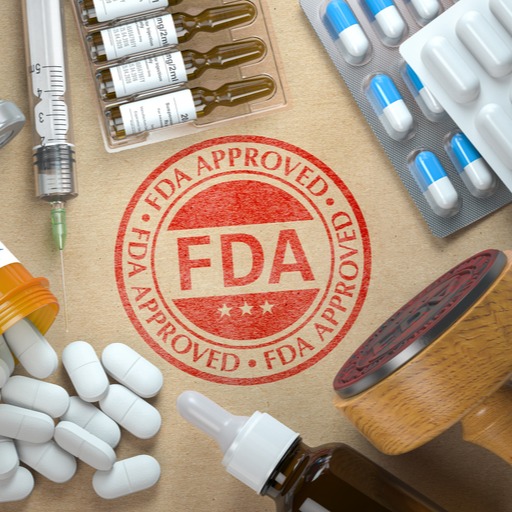
On September 11, 2023, the US Food and Drug Administration (FDA) authorized updated COVID-19 vaccines for emergency use. The approval was granted to the pharmaceutical houses ModernaTX Inc. and Pfizer Inc. for their mRNA vaccines updated for 2023–2024.
The driving force behind the rapid approval was the FDA’s desire to provide protection against severe consequences of COVID-19, including hospitalization and death. The vaccines in question were developed to target Omicron variant XBB.1.5.
The Background
For the public, the process of developing vaccines and the governmental approval process appears straightforward: vaccine manufacturers produce and test a vaccine, and the government approves it.
The actual process is much more complicated… and contentious.
There is a tangled web of epidemiologists (experts in epidemics, usually medical doctors and PhDs), public health authorities at the federal and state levels, governmental agencies like the FDA, and quasi-governmental agencies like the Centers for Disease Control. These groups battle internally and with one another to generate coherent messages that the public can understand and act upon.
There are networks of pharmacies, private clinics, hospitals, and private practice physicians. Finally, there is the public, who labors to understand the messaging and make informed choices. More often than not, individual citizens are too busy to wade deep into the weeds to understand the intricacies of epidemiology and public health; they just want to know what the doctor recommends.
The Principles
For non-professionals, it is best to understand the principles on which vaccine development and recommendations are based.
Vaccinate where there is risk. If an infectious disease threatens health and well-being, and if it is possible to develop a vaccine, then vaccine development can move forward, usually with a government's (financial) backing. For SARS-CoV-2, the coronavirus that causes COVID-19, it became clear early in 2020 that the virus posed a threat of death and hospitalization to several vulnerable groups. There was even concern that hospitals would run out of respirators and patients would die in hallways. Fortunately, the most dire predictions were never realized.
Develop a safe and effective vaccine. Both words are critical here: The vaccine must be safe. The first vaccines against smallpox were given in the 18th century. Smallpox was a deadly disease, but there was also a significant risk of death associated with the vaccine. Such threats would probably not be tolerated by modern public health officials. Vaccines must also be effective; this means they must prevent the disease caused by the infectious agent. For example, the purpose of a tetanus vaccine is not to allow individuals to contract less severe forms of tetanus (there are no less severe forms); the intention is to prevent tetanus full stop. Here, the COVID-19 vaccines have been less successful, meaning that substantial numbers of fully vaccinated individuals have become ill with COVID-19. What followed was a type of ‘moving the goalposts’ by public health authorities. In other words, the data showed that the vaccine saved lives and prevented deaths but did not prevent transmission of the virus.
Practice good epidemiology. Epidemiology focuses on populations, not individuals. A good epidemiologist seeks to discover what groups of individuals are at risk and why. Epidemiologists should care about outcomes: what happens to individuals exposed to an infectious agent? How many have infections without symptoms? How many get so sick they require hospital level of care? How many are permanently disabled, and how many die? In the early days of the pandemic, it became clear that the populations most at risk were frail older adults and those with chronic heart and lung problems.
What Now?
There is talk among various groups that the COVID-19 vaccine might become an annual recommendation in the same way that yearly influenza vaccines are recommended. Others have argued that there is insufficient evidence to suggest that yearly COVID-19 vaccines will be necessary. It is critical to understand that the drivers behind this concept are not entirely based on scientific principles from epidemiology; some are based on financial incentives and are advocated for by pharmaceutical houses.
Nevertheless, the story is even more nuanced. Traditionally, vaccines are not seen as suitable investments for the pharmaceutical industry. Research and development costs are high, and the returns on investment are relatively low. This is why so few companies manufacture (for example) childhood vaccines.
The COVID ‘Cliff’
COVID-19 changed vaccine economics. In only two years, COVID-19 vaccines accounted for tens of billions of dollars in revenues for a handful of manufacturers. Over time, as the pandemic cooled and percentages of vaccinated individuals leveled off worldwide, these manufacturers faced the prospect of losses. Their collective need to remain in business cannot be ignored when considering the results of studies run by these same companies. Economists call this the ‘COVID cliff,’ and several firms risk falling off it. When the bottom line is at stake, companies are vulnerable to the temptation to let financial incentives alter their data.
Risks and Benefits
Talk to your healthcare provider about any vaccine, including COVID-19 vaccines. Consider your risk of becoming severely ill from the disease, particularly if you are not vaccinated and have not contracted COVID-19 previously. If you have been vaccinated, consider whether you suffered any adverse reactions from the vaccine or its ingredients. Finally, understand that the decision is not straightforward; there is a substantial gray area. Nevertheless, if the benefits outweigh the risks, you and your healthcare provider will likely favor vaccination.
Rely on PlanetDrugsDirect.com to Buy Online Prescription Drugs
As a trusted prescription referral service, we offer important benefits whenever you order online. Each of our partner pharmacies and/or government-approved dispensaries is committed to providing the best experience possible of any online prescription referral service on the internet. We offer:
Low prices
Quick turn-around times
Generic and brand-name medications
Unparalleled customer service
Sources
https://www.fda.gov/news-events/press-announcements/fda-takes-action-updated-mrna-covid-19-vaccines-better-protect-against-currently-circulating
https://www.webmd.com/covid/news/20230615/fda-panel-backs-new-covid-booster-focusing-only-on-variants
https://www.reuters.com/business/healthcare-pharmaceuticals/drug-companies-face-covid-cliff-2023-sales-set-plummet-2023-02-06/






